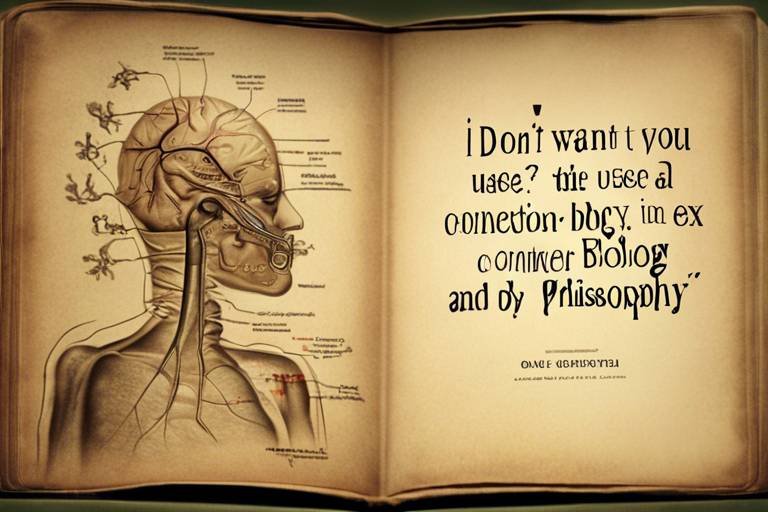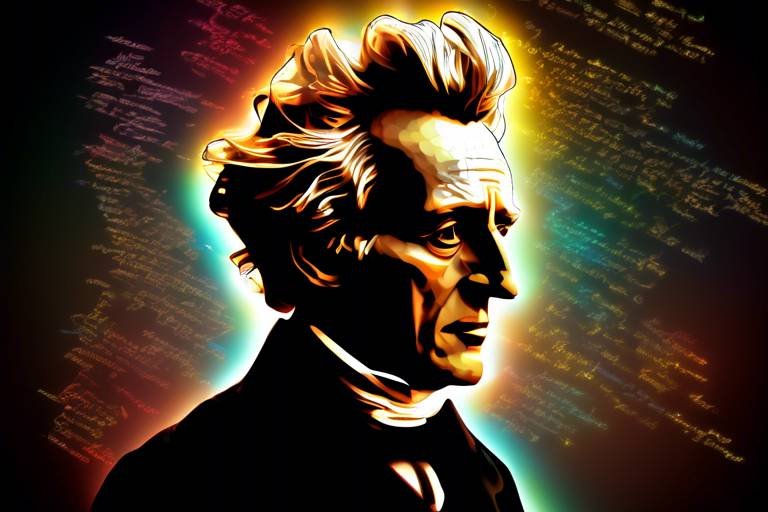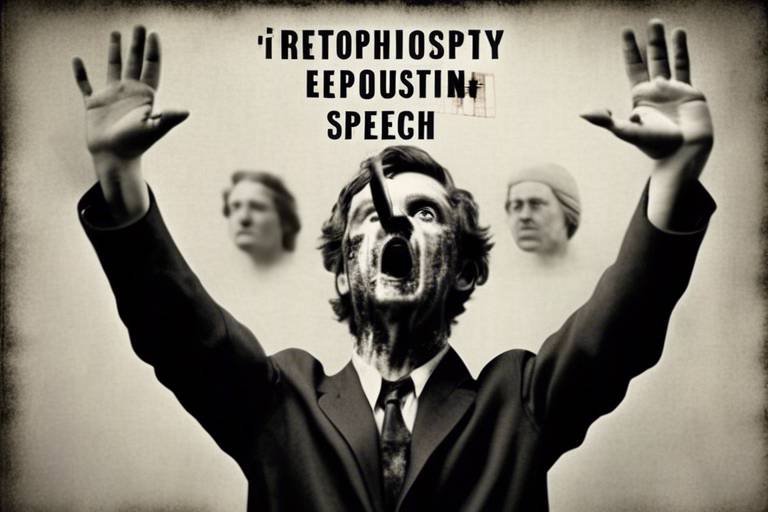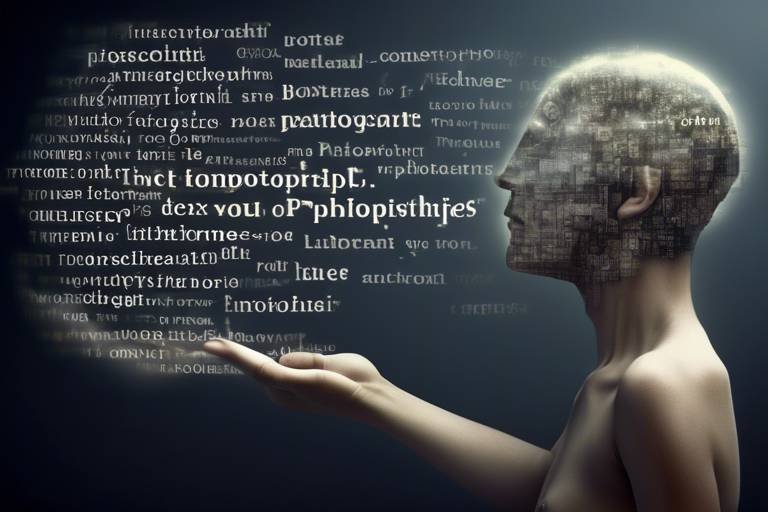Evolutionary Theory and its Implications for Philosophy
In the vast tapestry of human thought, few concepts have woven themselves into the very fabric of our understanding quite like evolutionary theory. This theory, which explains the gradual development of life through mechanisms like natural selection and genetic variation, does not merely reside in the realm of biology; it spills over into the philosophical discourse, challenging our perceptions of knowledge, ethics, and even the essence of human existence. As we delve into this fascinating intersection, we find ourselves confronted with profound questions: What does it mean to be human in a world shaped by evolution? How do our ethical frameworks evolve alongside us? And what implications does this have for our understanding of consciousness and identity? In this article, we will explore these questions and more, shedding light on how evolutionary concepts not only influence but also enrich philosophical inquiry.
At its core, evolutionary theory provides a lens through which we can examine the nature of existence. It invites us to consider the processes that have led to the diversity of life we see today, pushing us to reevaluate our place within this grand narrative. The implications are vast and varied, affecting everything from our understanding of morality to our conception of free will. By examining these implications, we can better grasp the intricate dance between science and philosophy, revealing how each discipline can inform and enhance the other.
As we embark on this exploration, we will uncover the ways in which evolutionary theory not only challenges traditional philosophical views but also compels us to redefine our understanding of fundamental concepts. This journey will take us through the realms of natural selection, ethics, and existential questions, ultimately leading to a greater appreciation of the complexities of life and the philosophical implications that arise from them. So, buckle up as we navigate through this intellectually stimulating landscape, where the wonders of evolution meet the depths of philosophical inquiry.
To fully appreciate the implications of evolutionary theory on philosophy, we must first grasp its foundational principles. At the heart of this theory lie three key concepts: natural selection, genetic variation, and adaptation. These principles not only explain how species evolve over time but also serve as a springboard for philosophical discussions. For instance, natural selection posits that organisms better adapted to their environment are more likely to survive and reproduce. This idea challenges the notion of a predetermined purpose in nature, suggesting instead that life is shaped by chance and environmental factors.
Moreover, genetic variation introduces the idea that diversity within a species is crucial for survival, leading to the question: if variation is essential for life, what does that imply about the human experience? Are our thoughts, behaviors, and beliefs merely products of our genetic makeup and environmental influences? Such inquiries open the floodgates to philosophical debates about free will, identity, and the essence of what it means to be human.
Natural selection, while a biological concept, raises significant philosophical questions about purpose and design in nature. Traditionally, many philosophical views have embraced the idea of teleology, which posits that everything has a purpose. However, the randomness inherent in natural selection challenges this notion, forcing us to reconsider the role of chance in the development of life. This shift prompts a reevaluation of how we define purpose in a world that may not have a grand design.
As we explore the implications of natural selection, we must ask ourselves: how does this theory influence our understanding of purpose? If life is a product of random mutations and environmental pressures, what significance do we hold in this vast universe? This inquiry leads to a profound realization: our purpose may not be preordained but rather something we create for ourselves within the framework of our evolutionary history. In this sense, consciousness and self-awareness become vital components in defining our own significance.
Another fascinating intersection of evolutionary theory and philosophy lies in the realm of ethics. Evolutionary psychology suggests that our moral instincts may be rooted in survival strategies developed over millennia. This perspective challenges traditional views of morality as being absolute and universal. Instead, it posits that our ethical frameworks are shaped by both biological imperatives and cultural contexts.
This leads us to a critical examination of moral absolutism. As we understand that our moral beliefs may be influenced by evolutionary factors, we begin to see ethics as a more relativistic concept. This realization can be both liberating and daunting: it opens the door to a more nuanced understanding of morality while simultaneously challenging the idea of universal truths that have long been held in philosophical discourse.
As we delve deeper into the implications of evolutionary theory, we encounter existential questions about identity and meaning. How does our understanding of evolution shape our perception of the human condition? If we are the product of countless generations of adaptation and survival, what does that mean for our sense of self? These questions invite us to reflect on our place in the universe and the narratives we construct about our existence.
In examining the relationship between evolutionary theory and philosophy, we uncover a rich tapestry of ideas that challenge established norms. Science and philosophy, often seen as distinct domains, are intertwined in their quest for understanding. Evolutionary theory serves as a bridge, linking empirical evidence with philosophical reasoning, and prompting us to reconsider our assumptions about the world.
As we navigate this intersection, we find that evolutionary theory confronts traditional philosophical positions on free will, consciousness, and human nature. The idea that our thoughts and actions may be influenced by evolutionary processes challenges the notion of individual autonomy. Are we merely products of our biology, or do we possess the capacity for genuine choice? This tension invites a reevaluation of what it means to be human in a world shaped by evolution.
Philosophical inquiry plays a crucial role in enhancing our understanding of evolutionary theory. By applying critical thinking and reflective analysis, philosophy provides a framework through which we can interpret scientific findings and their broader implications for humanity. This collaboration between science and philosophy enriches our understanding of both fields, allowing us to explore the complexities of life from multiple perspectives.
- What is evolutionary theory? Evolutionary theory is a scientific explanation for the diversity of life on Earth, primarily through mechanisms like natural selection and genetic variation.
- How does evolutionary theory impact philosophy? It challenges traditional views on purpose, ethics, and human existence, prompting a reevaluation of concepts such as free will and morality.
- Can ethics be explained through evolutionary psychology? Yes, evolutionary psychology suggests that our moral instincts may stem from survival strategies, leading to a more relativistic understanding of ethics.
- What are the implications for human identity? The understanding that we are products of evolutionary processes raises questions about our sense of self and the narratives we construct about our existence.

The Foundations of Evolutionary Theory
At the heart of evolutionary theory lies a tapestry of ideas that have reshaped our understanding of life on Earth. The concept of natural selection, famously articulated by Charles Darwin, serves as the cornerstone of this theory. It posits that organisms better adapted to their environments are more likely to survive and reproduce. This process is not merely a random occurrence; it is a systematic mechanism that drives the evolution of species over time. But what does this mean for us? It challenges the notion of a static world, suggesting instead that life is in constant flux, adapting and evolving in response to environmental pressures.
Another critical element of evolutionary theory is genetic variation. This refers to the differences in DNA among individuals within a population. These variations are crucial as they provide the raw material for natural selection to act upon. Without genetic variation, the process of evolution would stall, leaving species vulnerable to extinction. Imagine a world where every organism is identical; it would be a fragile ecosystem, unable to adapt to changing conditions. Therefore, genetic diversity is not just a biological concept; it is a lifeline for survival.
Furthermore, the idea of adaptation plays a vital role in understanding evolutionary processes. Adaptation is the process through which species become better suited to their environments. This can manifest in various forms, from the physical traits of an organism to its behaviors. For example, consider the beaks of Darwin's finches, which evolved to exploit different food sources on the Galápagos Islands. This adaptation not only showcases the beauty of evolutionary processes but also highlights the intricate connection between organisms and their environments.
As we delve deeper into evolutionary theory, it becomes clear that these foundational principles—natural selection, genetic variation, and adaptation—are not just scientific concepts; they are philosophical gateways. They prompt us to rethink our place in the universe and challenge long-held beliefs about purpose and existence. By understanding these concepts, we can better appreciate the complexity of life and the profound implications they hold for various fields, including philosophy, ethics, and our understanding of human existence.
In summary, the foundations of evolutionary theory offer us a lens through which to view the world. They remind us that life is not a predetermined path but rather a dynamic journey shaped by countless interactions and adaptations. As we explore the implications of these principles further, we will uncover how they influence our understanding of knowledge, ethics, and what it means to be human.

Philosophical Implications of Natural Selection
The concept of natural selection is not just a biological principle; it serves as a profound catalyst for philosophical inquiry. At its core, natural selection suggests that organisms best adapted to their environment are more likely to survive and reproduce. This simple yet powerful idea raises significant questions about the nature of purpose and design in the universe. Can we truly claim that life has an inherent purpose, or is it merely the product of random chance and survival strategies? These questions challenge traditional philosophical views, particularly those rooted in teleology, which posits that everything has a specific purpose or end goal.
One of the most striking implications of natural selection is the way it forces us to reconsider our understanding of human significance. If we are simply the result of evolutionary processes, what does that say about our place in the universe? Are we just another species among millions, or do we possess a unique consciousness that gives us a special role? This leads us to a critical reevaluation of purpose in a natural world—one where the concept of purpose is not predetermined but rather shaped by the ongoing processes of adaptation and survival.
Moreover, the philosophical implications extend into the realm of ethical considerations. If our moral instincts are products of evolutionary survival strategies, as suggested by evolutionary psychology, we must ask ourselves: Are our ethical beliefs merely reflections of our biological heritage? This perspective could imply that morality is not a set of universal truths but rather a collection of adaptive behaviors that have evolved over time. Thus, the foundations of our ethics could be more fluid and contextual than we once believed.
To illustrate this point, we can consider the following aspects:
- Moral Relativism: If morality is shaped by evolutionary pressures, then ethical standards may vary significantly across different cultures and environments.
- Adaptive Morality: Actions deemed moral in one context may not hold the same weight in another, suggesting a more flexible understanding of ethics.
- Evolutionary Roots: Our instincts for cooperation, altruism, and even competition may have deep evolutionary roots that inform our moral frameworks.
In essence, natural selection not only challenges our views on purpose but also reshapes our understanding of ethics and morality. It invites us to explore a world where our beliefs and values are not fixed but rather dynamic, continuously influenced by the forces of evolution. This perspective encourages a more nuanced approach to ethics, one that recognizes the complexity of human behavior and the myriad factors that shape our moral landscape.
As we delve deeper into the philosophical implications of natural selection, we find ourselves grappling with existential questions that challenge our very identity and meaning in life. This ongoing dialogue between evolutionary theory and philosophy is crucial for understanding not just who we are, but also how we relate to the broader tapestry of life on Earth.
- What is natural selection? Natural selection is a process where organisms better adapted to their environment tend to survive and produce more offspring.
- How does natural selection affect our understanding of purpose? It challenges the notion of inherent purpose, suggesting that purpose may be shaped by environmental factors and survival needs.
- Can ethics be rooted in evolutionary theory? Yes, evolutionary psychology suggests that our moral instincts may be influenced by survival strategies, leading to a more relativistic view of ethics.
- What are the implications of moral relativism? It implies that ethical standards can vary across cultures and contexts, challenging the idea of universal moral truths.

Redefining Purpose in a Natural World
When we think about purpose in our lives, we often imagine a grand design, a cosmic plan that gives our existence meaning. However, the principles of natural selection challenge this notion, urging us to reconsider what it means to have purpose in a world that operates largely through chance and adaptation. Instead of viewing ourselves as the pinnacle of creation, evolutionary theory suggests that we are just one branch on a sprawling tree of life, shaped by countless generations of survival and change.
Imagine for a moment that life is like a vast, intricate puzzle. Each piece represents a different species, each evolving and adapting over time to fit into the ever-changing picture of existence. In this context, our purpose is not predetermined or fixed; rather, it is fluid, shaped by our interactions with our environment and the challenges we face. This perspective can be both liberating and daunting. It allows us to define our own significance, yet it also forces us to confront the reality that purpose may not be a universal truth but a subjective experience.
One might ask, if there is no grand design, what then drives our actions and aspirations? The answer may lie in our consciousness and our ability to reflect on our experiences. As humans, we possess a unique capacity for self-awareness and critical thinking, enabling us to create our own meaning and purpose. This intrinsic ability to question, to aspire, and to connect with others can be viewed as an evolutionary advantage, allowing us to navigate the complexities of life with intention.
Moreover, as we redefine purpose within this natural framework, we begin to recognize the interconnectedness of all living beings. Our actions have consequences not only for ourselves but also for the ecosystems and communities that surround us. This realization can foster a sense of responsibility and stewardship, prompting us to consider how our choices impact the world. In this sense, purpose becomes a shared journey, one that encourages collaboration and empathy among all forms of life.
In summary, the challenge of redefining purpose in a natural world invites us to embrace a more dynamic understanding of our existence. It encourages us to look beyond rigid definitions and to find meaning in the relationships we build and the lives we lead. As we navigate this intricate web of life, we may discover that our purpose is not something to be found, but rather something to be created, nurtured, and continuously evolved.
- What is the main idea behind redefining purpose in a natural world?
The main idea is to shift our understanding of purpose from a fixed, grand design to a fluid, subjective experience shaped by our interactions and adaptations within the natural world. - How does natural selection influence our sense of purpose?
Natural selection emphasizes adaptation and survival, suggesting that purpose is not predetermined but rather constructed through our experiences and choices. - Can we create our own purpose?
Yes! Our unique capacity for self-awareness and reflection allows us to define and create our own meaning and purpose in life. - What role does interconnectedness play in our understanding of purpose?
Recognizing our interconnectedness with all living beings fosters a sense of responsibility and encourages us to consider the impact of our actions on the broader ecosystem.

Ethics and Evolutionary Psychology
When we delve into the realm of ethics through the lens of evolutionary psychology, we uncover fascinating insights about human behavior and moral decision-making. Imagine for a moment that our moral instincts are not just abstract concepts handed down through generations, but rather, they are deeply rooted in our evolutionary past. This perspective suggests that our ethical frameworks may have evolved as survival strategies, shaped by the need to cooperate, compete, and navigate the complexities of social interactions.
At the heart of this exploration lies the idea that our ancestors faced challenges that required them to develop a sense of right and wrong. For instance, behaviors that fostered group cohesion—such as altruism and fairness—may have increased the chances of survival for early humans. This leads us to question: Are our moral intuitions innate, or are they learned through cultural influences? The answer may be a blend of both, where evolutionary pressures set the stage for certain predispositions, while culture colors the specifics of moral behavior.
To illustrate this connection further, consider the following examples of moral behaviors that may have evolved:
- Altruism: Helping others can enhance the survival of the group, thereby increasing the chances of one's own genes being passed on.
- Reciprocity: The practice of returning favors fosters trust and cooperation, essential for group living.
- Justice: A sense of fairness can deter cheating and promote collaboration, vital for resource sharing.
These behaviors exemplify how evolutionary psychology provides a framework for understanding the origins of our ethical systems. However, this raises further questions: If our morals are shaped by evolution, does that mean they are inherently flexible? Can we justify actions based solely on evolutionary advantages? This is where the debate intensifies, as some may argue that if morality is merely a product of survival, it could lead to a form of moral relativism, undermining the idea of universal ethical standards.
Moreover, the implications of evolutionary psychology on ethics extend to contemporary issues, such as genetic engineering and bioethics. As we gain the ability to manipulate our own biology, we must grapple with the ethical ramifications of our choices. Are we playing God, or are we simply exercising the same survival instincts that have guided humanity for millennia? The intersection of ethics and evolutionary psychology invites us to reconsider our moral compass in a world that is rapidly evolving.
In conclusion, examining ethics through the lens of evolutionary psychology not only enriches our understanding of human behavior but also challenges us to rethink the foundations of our moral beliefs. As we continue to explore this fascinating intersection, we may find that our ethical principles are as dynamic as the evolutionary processes that shaped them.
- What is evolutionary psychology?
Evolutionary psychology is a theoretical approach that explains psychological traits as evolved adaptations, shaped by natural selection.
- How does evolutionary psychology relate to ethics?
It suggests that our moral instincts may have evolved as survival strategies, influencing our understanding of right and wrong.
- Can moral behavior be explained solely by evolution?
While evolutionary factors play a significant role, cultural influences also shape our moral frameworks.
- What are the implications of genetic engineering on ethics?
Genetic engineering raises complex ethical questions about the extent of our manipulation of human biology and its consequences.

The Critique of Moral Absolutism
The concept of moral absolutism posits that there exist universal moral principles that apply to all individuals, regardless of context or circumstance. This idea has long been a cornerstone of ethical theory, providing a sense of stability and clarity in moral reasoning. However, with the rise of evolutionary theory, this notion is increasingly being challenged. One of the most compelling arguments against moral absolutism stems from the understanding that our moral instincts and behaviors have been shaped by the pressures of natural selection. This leads to the question: if our morals are products of evolution, can they truly be considered absolute?
Take, for example, the way different cultures perceive concepts such as justice, fairness, and even love. What one society deems morally acceptable, another may view as entirely wrong. This cultural variability suggests that moral principles are not as universal as moral absolutists would like to believe. Instead, they may be more akin to adaptive traits—shaped by the needs and challenges of specific environments. As such, moral values can shift over time, influenced by factors such as social evolution, technological advancements, and cultural exchange.
Furthermore, evolutionary psychology offers insights into why we might prioritize certain moral behaviors over others. For instance, behaviors that promote group cohesion, such as altruism and cooperation, may have been favored in our evolutionary past, as they enhance the survival of the group. This perspective implies that our moral instincts are not just arbitrary but are deeply rooted in our biological heritage. Thus, when we consider morality through the lens of evolution, we find ourselves grappling with a more relativistic understanding of ethics—one that recognizes the influence of both cultural context and biological imperatives.
To illustrate this point further, let's consider a few examples of how moral principles can vary:
- Honor Killings: In some cultures, honor killings are seen as a justified response to perceived dishonor, while in others, they are viewed as morally reprehensible.
- Gender Roles: Societal expectations regarding gender can differ dramatically, influencing what is considered acceptable behavior for men and women.
- Environmental Ethics: Different cultures have varying views on the importance of environmental conservation, affecting their moral obligations towards nature.
In light of these examples, it becomes clear that the critique of moral absolutism is not just an academic exercise; it has real-world implications. By acknowledging the fluidity of moral principles, we open the door to a more inclusive and nuanced understanding of ethics. This approach encourages dialogue and empathy, allowing for a richer tapestry of moral discourse that respects diverse perspectives. Ultimately, the challenge posed by evolutionary theory compels us to reconsider not only what we believe to be right or wrong but also why we hold those beliefs in the first place.
- What is moral absolutism? Moral absolutism is the belief that certain actions are absolutely right or wrong, regardless of the context or consequences.
- How does evolutionary theory challenge moral absolutism? Evolutionary theory suggests that our moral values are shaped by biological and cultural evolution, leading to a more relativistic view of ethics.
- Can moral values change over time? Yes, moral values can evolve based on cultural shifts, societal changes, and advancements in understanding human behavior.
- What role does culture play in shaping morality? Culture significantly influences moral beliefs and practices, leading to variations in what is considered ethical across different societies.

Human Existence and Existential Questions
When we dive into the depths of human existence, we find ourselves grappling with some of the most profound questions that have puzzled thinkers for centuries. What does it mean to be human? Are we merely products of chance, shaped by the relentless forces of evolution, or do we possess an inherent purpose? These inquiries are not just philosophical musings; they are essential to understanding our place in the universe.
At the heart of existential philosophy lies the quest for meaning. In a world where evolutionary theory suggests that life is a product of random mutations and survival of the fittest, one might wonder if our lives are devoid of significance. However, many philosophers argue that it is precisely within this framework that we can carve out our own meaning. Just as a sculptor chisels away at a block of marble to reveal a masterpiece, we, too, can shape our identities and purposes through our choices and experiences.
Consider the implications of evolutionary theory on our understanding of identity. If we are the result of countless generations of adaptation and change, then who are we, really? Are we simply the sum of our ancestors’ traits, or do we possess a unique essence that transcends biological determinism? This tension between our evolutionary past and our conscious self-awareness raises intriguing questions about the nature of selfhood and individuality. It challenges us to reflect on whether our identities are fixed or fluid, influenced by both our biological heritage and our personal experiences.
Moreover, the concept of existential angst emerges from this contemplation. As we confront the reality of our existence, we may feel a sense of disconnection or even despair. The knowledge that we are but a fleeting moment in the vast timeline of the universe can be overwhelming. Yet, it is also liberating. Recognizing our ephemeral nature allows us to embrace the present, to live fully and authentically, and to forge connections with others. In this way, the existential questions we face can serve as catalysts for personal growth and deeper understanding.
In addition, the interplay between evolution and existential thought opens up discussions about morality and ethics. If our moral instincts have evolved as survival strategies, what does that mean for our understanding of right and wrong? Are our ethical frameworks merely reflections of our biological needs, or do they point to something more profound? This inquiry invites us to explore the foundations of our moral beliefs and consider how they are shaped by both our evolutionary background and our cultural contexts.
Ultimately, the exploration of human existence through the lens of evolutionary theory is not just an academic exercise; it is a deeply personal journey. Each of us must confront these existential questions in our own lives, seeking to define our purpose, understand our identities, and navigate the complexities of morality. By engaging with these ideas, we can foster a richer understanding of what it truly means to be human in a world that is constantly evolving.
- What is the significance of evolutionary theory in understanding human existence?
Evolutionary theory provides a framework for understanding how humans have developed over time, influencing our identities, behaviors, and ethical beliefs. - How does existential philosophy relate to evolutionary concepts?
Existential philosophy encourages individuals to find personal meaning in their lives, even in the face of the randomness suggested by evolutionary processes. - Can we create our own purpose in life?
Yes! While evolutionary theory may suggest a lack of inherent purpose, individuals have the capacity to define their own meanings and goals. - How do morality and evolutionary psychology intersect?
Evolutionary psychology posits that our moral instincts may have developed as survival mechanisms, prompting questions about the nature of ethics and morality.

The Intersection of Science and Philosophy
The relationship between science and philosophy has always been a dynamic dance, a tango of ideas that influences how we understand the world around us. When we delve into the realm of evolutionary theory, this interplay becomes even more pronounced. Science, with its empirical methods and data-driven conclusions, provides a framework through which we can explore the mysteries of life. Philosophy, on the other hand, invites us to ponder the deeper meanings and implications of these scientific discoveries. Together, they create a rich tapestry of understanding that challenges our perceptions and expands our horizons.
At the heart of this intersection lies the question: How do scientific findings shape philosophical thought, and vice versa? Take, for example, the implications of evolutionary biology on our understanding of human nature. Scientific discoveries about genetic inheritance and natural selection force us to reconsider long-held philosophical beliefs about free will and determinism. Are we merely products of our genes, or do we possess the ability to shape our destinies? This complex interplay invites us to reflect on the essence of what it means to be human in a world governed by evolutionary processes.
Furthermore, evolutionary theory serves as a bridge between empirical evidence and philosophical reasoning. It compels us to ask questions that are not just scientific but deeply philosophical. For instance, how does the concept of survival of the fittest challenge our traditional notions of morality and ethics? As we explore these questions, we begin to see that the answers are not always clear-cut. The philosophical ramifications of scientific discoveries can lead us into uncharted territories, forcing us to grapple with uncomfortable truths about our existence.
One of the most significant challenges posed by evolutionary theory to traditional philosophical views is the critique of human exceptionalism. In a world where humans are just one species among many, how do we reconcile our perceived superiority with the scientific understanding of our place in the natural order? This realization can be unsettling, prompting a reevaluation of our values and beliefs. It pushes us to reconsider the ethical frameworks that guide our actions and decisions, urging us to adopt a more nuanced understanding of our responsibilities toward other species and the environment.
To illustrate this intersection further, consider the following table that summarizes key philosophical questions raised by evolutionary science:
| Philosophical Question | Scientific Insight |
|---|---|
| What is the nature of free will? | Studies in genetics suggest that our behaviors may be influenced by biological factors. |
| Are moral values universal? | Evolutionary psychology indicates that moral instincts may be shaped by survival needs. |
| What does it mean to be human? | Understanding our evolutionary history complicates the notion of human uniqueness. |
In conclusion, the intersection of science and philosophy is a fertile ground for exploration and discovery. By engaging with evolutionary theory, we not only enhance our scientific understanding but also enrich our philosophical inquiries. This dialogue between the two disciplines encourages us to embrace uncertainty and complexity, reminding us that the pursuit of knowledge is an ongoing journey. As we navigate this intricate landscape, we must remain open to new ideas and perspectives, allowing both science and philosophy to inform and inspire one another.
- How does evolutionary theory influence our understanding of morality?
Evolutionary theory suggests that our moral instincts may have developed as survival strategies, prompting a more relativistic view of ethics. - Can philosophy and science coexist?
Absolutely! Philosophy provides a critical lens through which we can interpret scientific findings, enriching our understanding of both fields. - What are the implications of questioning human exceptionalism?
This challenges our ethical frameworks and encourages a more responsible approach to our interactions with other species and the environment.

Challenges to Traditional Philosophical Views
The advent of evolutionary theory has profoundly reshaped the landscape of philosophical inquiry, presenting a myriad of challenges to traditional views that have long dominated the field. One of the most significant impacts of this theory is its challenge to the concept of free will. For centuries, philosophers have grappled with the idea of human agency, positing that individuals possess the ability to make choices independent of external influences. However, evolutionary theory suggests that our behaviors and decisions may be heavily influenced by our genetic makeup and evolutionary history. This raises a compelling question: if our choices are largely determined by biological factors, to what extent can we claim to be truly free in our decision-making?
Moreover, the implications of evolutionary theory extend to our understanding of consciousness. Traditional philosophical views often regard consciousness as a unique trait that separates humans from other species. Yet, evolutionary theory posits that consciousness is a product of evolutionary processes, evolving as a survival mechanism. This perspective invites us to reconsider the uniqueness of human thought and the nature of our cognitive experiences. Are we merely the byproducts of natural selection, or is there something inherently special about human consciousness? This dilemma forces us to rethink our philosophical frameworks and consider the continuity of consciousness across species.
Additionally, the concept of human nature itself is under scrutiny. Philosophers have long debated what it means to be human, often attributing certain characteristics—such as rationality, morality, and sociality—as intrinsic to our species. However, evolutionary theory suggests that these traits are not fixed but rather are subject to change over time, influenced by environmental pressures and survival needs. This challenges the notion of a static human essence and encourages a more dynamic understanding of what it means to be human. As we delve deeper into our evolutionary past, we must confront the reality that our nature is not a predetermined path but a fluid narrative shaped by countless factors.
In light of these challenges, it becomes evident that traditional philosophical views must evolve to accommodate the insights offered by evolutionary theory. This does not mean discarding established concepts altogether; rather, it calls for a re-evaluation and integration of these ideas into a more comprehensive understanding of human existence. The intersection of science and philosophy presents a fertile ground for new discussions, urging philosophers to rethink their positions in light of empirical evidence. As we navigate this complex terrain, we must remain open to the possibility that our philosophical frameworks may require significant adaptation to align with our evolving understanding of the natural world.
In summary, the challenges posed by evolutionary theory to traditional philosophical views are profound and far-reaching. From questions of free will and consciousness to the very essence of human nature, these challenges compel us to engage in a deeper dialogue about the implications of our biological heritage. As we continue to explore the intersections of science and philosophy, we are reminded that the quest for knowledge is a dynamic process, one that thrives on questioning and re-evaluating our long-held beliefs.
- What is evolutionary theory? - Evolutionary theory is a scientific explanation of how species change over time through processes like natural selection and genetic variation.
- How does evolutionary theory impact philosophy? - It challenges traditional views on free will, consciousness, and human nature, prompting a reevaluation of established philosophical concepts.
- Can philosophy and science coexist? - Yes, philosophy can provide critical insights that enhance our understanding of scientific findings, creating a dialogue between the two fields.
- What are the implications of rejecting moral absolutism? - Rejecting moral absolutism leads to a more relativistic understanding of ethics, acknowledging that moral truths may vary across cultures and contexts.

The Role of Philosophy in Understanding Evolution
When we think about evolution, it often feels like we’re diving into a sea of scientific jargon and complex theories. But what if I told you that philosophy plays a crucial role in helping us navigate these waters? Philosophy isn't just about pondering life's big questions in isolation; it actively engages with the findings of sciences like evolutionary biology to deepen our understanding of ourselves and our place in the universe. The interplay between these two fields is fascinating and essential, as it allows us to explore not just the 'how' of evolution, but also the 'why.'
To truly appreciate the depth of evolutionary theory, we need to ask ourselves some fundamental questions: What does it mean to be human in an evolutionary context? How do our moral frameworks evolve alongside our biological makeup? Philosophy serves as a lens through which we can examine these questions, providing critical insights that scientific data alone might not fully address. For instance, while science can explain the mechanisms of evolution—like natural selection and genetic drift—philosophy can help us reflect on the implications of these processes for our understanding of consciousness and identity.
Moreover, philosophy encourages us to challenge our assumptions. It pushes us to consider the ethical ramifications of evolutionary theory. Are our ethical instincts merely products of survival strategies honed over millennia? If so, what does that mean for concepts of morality and ethics? This exploration can lead to a more nuanced understanding of human behavior, one that acknowledges the influences of both biology and culture.
Philosophical inquiry also helps us confront the limitations of scientific explanations. For example, while we can trace the evolutionary lineage of species, we still grapple with questions about the meaning of existence itself. This is where philosophy shines—by prompting us to consider existential questions that science may not be equipped to answer. It compels us to think about our purpose and what it means to live a fulfilling life in a world shaped by evolutionary processes.
In summary, the role of philosophy in understanding evolution is multifaceted. It not only enhances our comprehension of scientific findings but also enriches our perspective on the human experience. By engaging in this dialogue, we can cultivate a deeper appreciation for both the scientific and philosophical dimensions of our existence. So, the next time you ponder the mysteries of life, remember that philosophy is not just an abstract discipline; it's a vital partner in our quest to understand evolution and our place within it.
- How does philosophy contribute to our understanding of evolution?
Philosophy helps us explore the implications of evolutionary theory, questioning our assumptions about morality, identity, and existence. - Can philosophy and science coexist?
Absolutely! Philosophy and science can complement each other, providing a more comprehensive understanding of complex topics like evolution. - What are some philosophical questions raised by evolutionary theory?
Questions about purpose, morality, and the nature of consciousness are just a few examples of what philosophy can help us explore in the context of evolution.
Frequently Asked Questions
- What is evolutionary theory?
Evolutionary theory is a scientific framework explaining how species change over time through processes like natural selection, genetic variation, and adaptation. It provides insights into the development of life on Earth and serves as a foundation for various philosophical discussions.
- How does natural selection influence philosophical thought?
Natural selection challenges traditional views on purpose and design in nature. It raises questions about whether life has inherent meaning or if it is shaped by chance events. This prompts philosophers to reconsider concepts like teleology and the significance of human existence within an evolutionary context.
- What role does evolutionary psychology play in ethics?
Evolutionary psychology suggests that our moral behaviors and instincts may be rooted in survival strategies developed over time. This perspective helps us understand morality as a product of evolution rather than fixed, universal truths, leading to a more relativistic view of ethics.
- Can evolutionary theory coexist with existential philosophy?
Absolutely! Evolutionary theory impacts existential questions by shaping our understanding of identity, meaning, and the human condition. It invites individuals to explore their significance in a world influenced by evolutionary processes, often leading to profound insights about existence.
- What are the implications of evolutionary theory for free will?
Evolutionary theory complicates the traditional notion of free will by suggesting that our choices may be influenced by biological and environmental factors. This raises questions about the extent of our autonomy and how much control we truly have over our actions.
- How can philosophy enhance our understanding of evolution?
Philosophy provides a critical lens through which we can interpret scientific findings related to evolution. It encourages deeper inquiry into the implications of these findings, helping us navigate complex questions about humanity, ethics, and our place in the natural world.



















